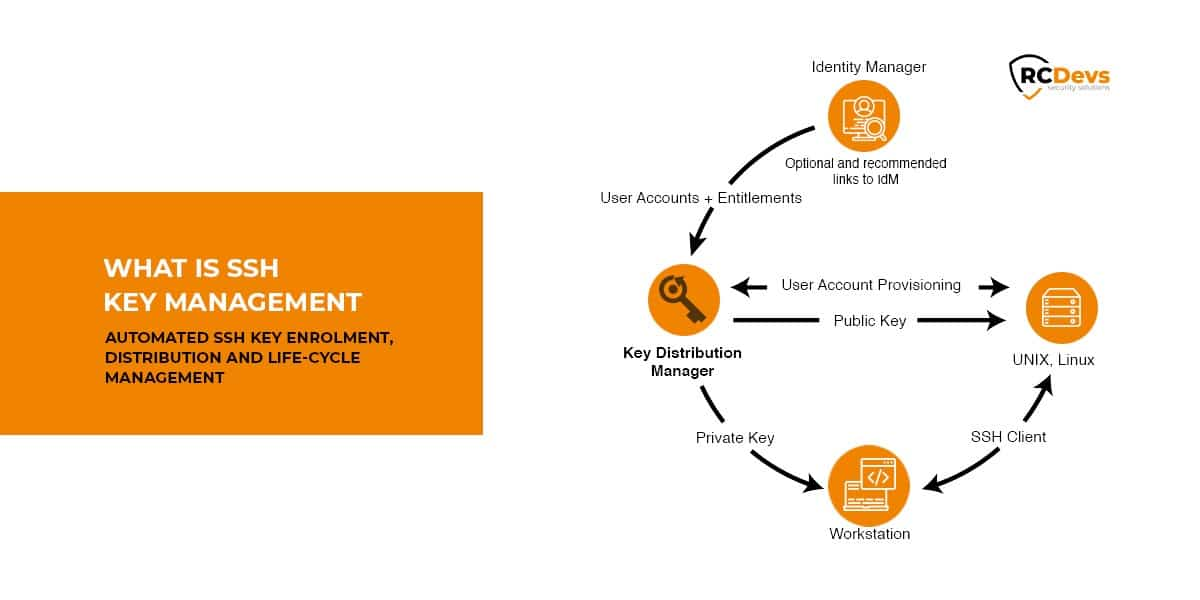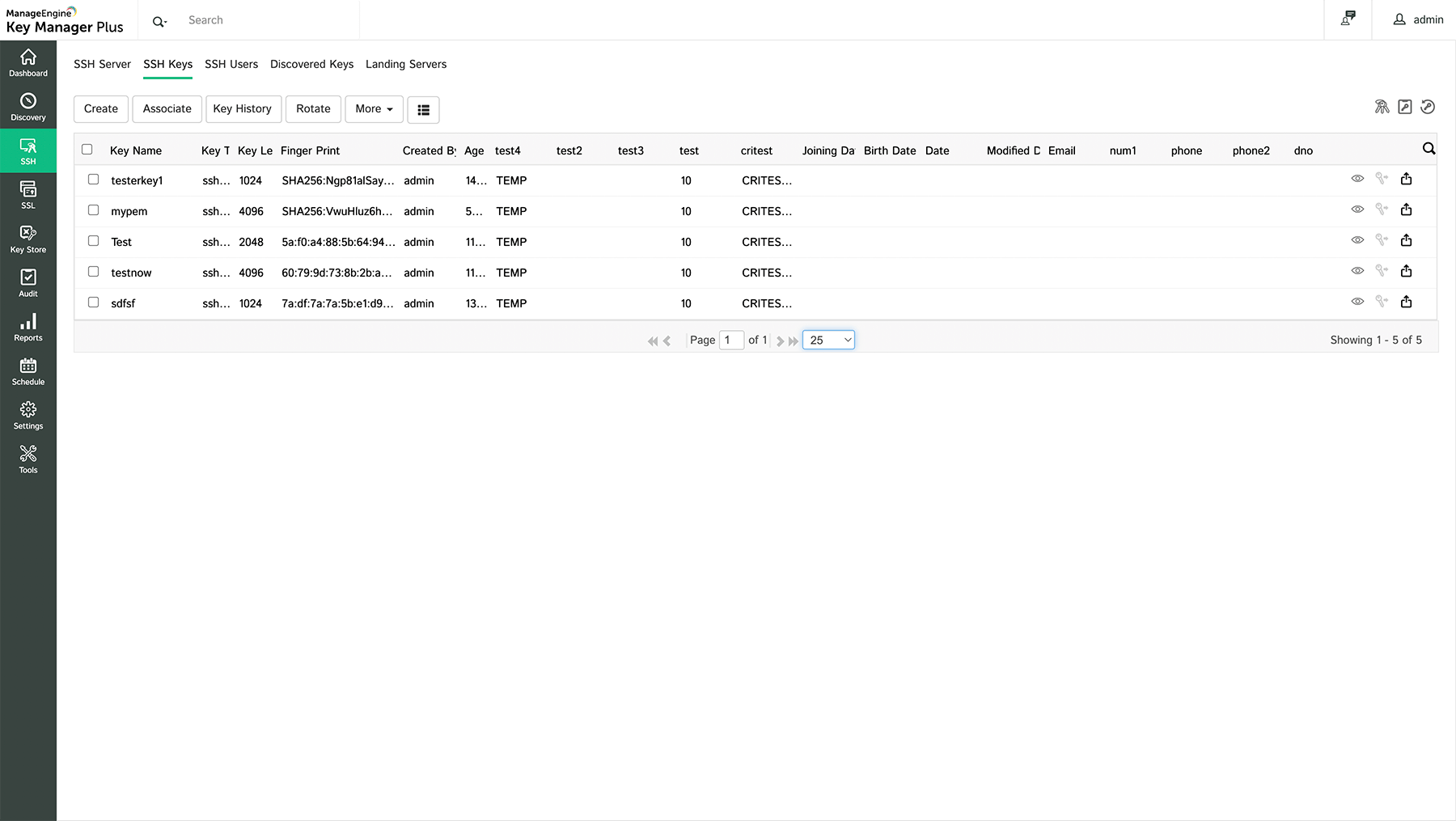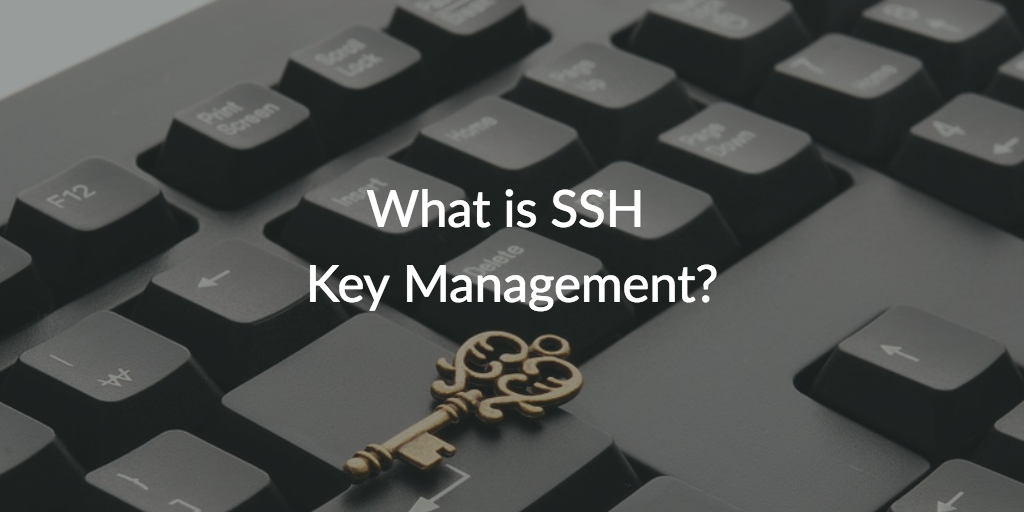Mastering SSH Key Management Solutions: The Ultimate Guide For 2023
SSH key management solutions are the backbone of secure remote access in today’s digital landscape. Imagine this: you’re managing multiple servers, and each one requires a unique key to ensure no unauthorized access happens. Now, multiply that by hundreds or even thousands of users and devices. Without proper SSH key management, chaos ensues. And trust me, nobody wants to deal with that kind of mess.
But here’s the deal—SSH keys are not just some random strings of characters. They are powerful tools that act as digital passports, allowing systems and users to communicate securely. However, managing these keys can quickly become overwhelming if you don’t have the right strategy in place. This is where SSH key management solutions come into play.
In this guide, we’ll deep-dive into everything you need to know about SSH key management solutions. From understanding the basics to exploring advanced strategies, we’ve got you covered. So, buckle up and let’s get started on securing your digital fortress!
Read also:Teresa Fidalgo Image The Real Story Behind The Viral Sensation
Table of Contents:
- What is SSH Key Management?
- Why SSH Key Management is Crucial
- Understanding the Types of SSH Keys
- Best Practices for SSH Key Management
- Top SSH Key Management Solutions
- Security Risks Without Proper SSH Key Management
- Automating SSH Key Management
- Compliance and Regulations in SSH Key Management
- The Future of SSH Key Management
- Conclusion
What is SSH Key Management?
SSH key management refers to the process of creating, distributing, storing, rotating, and revoking SSH keys across an organization’s infrastructure. It’s like being the bouncer at a club—you decide who gets in and who doesn’t. But instead of IDs, we’re talking about cryptographic keys that authenticate users and systems.
SSH keys are used to establish secure connections between a client and a server without relying on passwords. While this eliminates the risk of brute-force attacks, it also introduces new challenges. For instance, how do you ensure that every key is valid? How do you track expired keys? And most importantly, how do you prevent unauthorized access?
This is where SSH key management solutions step in. These solutions provide a centralized platform to manage all your SSH keys, ensuring that your systems remain secure and compliant with industry standards.
How SSH Keys Work
SSH keys operate on a public-private key pair system. The public key is shared with the server, while the private key remains confidential to the user. When a user tries to connect to a server, the server checks if the public key matches the private key. If it does, access is granted. Simple, right? Well, not exactly.
Managing these keys across multiple systems and users can become complex. That’s why having a robust SSH key management solution is essential.
Read also:Lea Martinez Nude Leaked Separating Facts From Fiction
Why SSH Key Management is Crucial
SSH key management isn’t just a nice-to-have feature; it’s a necessity. Think about it—your organization’s sensitive data is at stake. Without proper management, you’re leaving the door wide open for potential threats.
Here are a few reasons why SSH key management is so important:
- Enhanced Security: By managing SSH keys effectively, you reduce the risk of unauthorized access and data breaches.
- Improved Compliance: Many industries have strict regulations regarding key management. Proper SSH key management helps you stay compliant with these standards.
- Increased Efficiency: Automating key management processes saves time and reduces the likelihood of human error.
- Cost Savings: By preventing security incidents, you avoid costly downtime and reputational damage.
So, if you’re still manually managing SSH keys, it’s time to rethink your strategy. The risks far outweigh the benefits of doing things the old-fashioned way.
Common Challenges in SSH Key Management
While SSH key management solutions offer numerous benefits, they also come with their own set of challenges. Here are a few common issues organizations face:
- Key Sprawl: This occurs when too many SSH keys are created without proper tracking, leading to confusion and potential security risks.
- Key Rotation: Regularly rotating keys is crucial, but it can be a time-consuming process if done manually.
- Expired Keys: Forgotten or expired keys can leave systems vulnerable to attacks.
Addressing these challenges requires a well-thought-out SSH key management strategy.
Understanding the Types of SSH Keys
Not all SSH keys are created equal. There are different types of SSH keys, each with its own strengths and weaknesses. Let’s take a look at the most common ones:
- RSA Keys: The most widely used SSH key type, offering a good balance between security and performance.
- ECDSA Keys: These keys use elliptic-curve cryptography, providing stronger security with smaller key sizes.
- Ed25519 Keys: A newer type of key that offers high security and better performance compared to RSA and ECDSA keys.
Choosing the right type of SSH key depends on your specific needs and the systems you’re working with. It’s important to stay updated with the latest advancements in cryptography to ensure maximum security.
Key Length Matters
Another factor to consider is key length. Longer keys generally provide better security, but they also require more computational resources. For example, an RSA key with a length of 2048 bits is considered secure, but a 4096-bit key offers even stronger protection.
However, keep in mind that longer keys may slow down the authentication process. It’s all about finding the right balance between security and performance.
Best Practices for SSH Key Management
Implementing SSH key management solutions is just the first step. To truly secure your systems, you need to follow best practices. Here are a few tips to get you started:
- Limit Key Distribution: Only issue keys to users and systems that absolutely need them.
- Regularly Audit Keys: Conduct regular audits to ensure that all keys are valid and necessary.
- Automate Key Rotation: Use automation tools to rotate keys on a scheduled basis.
- Encrypt Keys: Protect your private keys with strong encryption to prevent unauthorized access.
By following these best practices, you can significantly enhance the security of your SSH key management system.
Role-Based Access Control
Implementing role-based access control (RBAC) is another effective way to manage SSH keys. RBAC allows you to assign specific permissions to users based on their roles within the organization. For example, a developer may have access to certain keys, while a system administrator has access to all keys.
This approach not only improves security but also simplifies key management by clearly defining who can access what.
Top SSH Key Management Solutions
Now that you understand the importance of SSH key management, let’s take a look at some of the top solutions available in the market:
1. Venafi
Venafi is a leading provider of SSH key management solutions. It offers a comprehensive platform for managing keys across your entire infrastructure. With features like automated key discovery and rotation, Venafi makes it easy to keep your systems secure.
2. CyberArk
CyberArk is another popular choice for SSH key management. It provides a centralized platform for managing all your keys, ensuring that only authorized users have access. CyberArk also offers advanced features like privileged session management and threat analytics.
3. HashiCorp Vault
HashiCorp Vault is an open-source solution that focuses on secrets management, including SSH keys. It offers a secure way to store and manage keys, with features like dynamic secrets and revocation.
Each of these solutions has its own strengths and weaknesses, so it’s important to evaluate them based on your specific needs and budget.
Security Risks Without Proper SSH Key Management
Ignoring SSH key management can have severe consequences. Here are a few potential risks:
- Unauthorized Access: Without proper management, malicious actors can gain access to your systems using untracked or expired keys.
- Data Breaches: Sensitive data can be compromised if SSH keys fall into the wrong hands.
- Compliance Issues: Failing to manage SSH keys properly can lead to non-compliance with industry regulations, resulting in fines and penalties.
These risks highlight the importance of implementing a robust SSH key management solution.
Real-World Examples
There are numerous real-world examples of organizations that have suffered due to poor SSH key management. For instance, a major cloud provider once experienced a security breach because of an untracked SSH key. The incident resulted in significant financial losses and damage to their reputation.
By learning from these examples, you can take proactive steps to secure your own systems.
Automating SSH Key Management
Automation is the key to effective SSH key management. Manual processes are prone to errors and can be time-consuming. By automating key management tasks, you can streamline operations and reduce the risk of human error.
Here are a few ways to automate SSH key management:
- Key Discovery: Use tools to automatically discover all SSH keys in your environment.
- Key Rotation: Schedule key rotations to ensure that all keys are up-to-date.
- Key Revocation: Automatically revoke keys when they are no longer needed.
Automation not only improves security but also frees up your team to focus on more strategic tasks.
Tools for Automation
There are several tools available for automating SSH key management. Some popular options include:
- Ansible: An open-source automation tool that can be used for key management tasks.
- Puppet: A configuration management tool that supports SSH key management.
- Chef: Another automation platform that can help streamline key management processes.
Choosing the right tool depends on your existing infrastructure and automation needs.
Compliance and Regulations in SSH Key Management
SSH key management isn’t just about security; it’s also about compliance. Many industries have strict regulations regarding key management, and failing to comply can result in hefty fines and penalties.
Here are a few regulations that may impact your SSH key management strategy:
- PCI DSS: Payment Card Industry Data Security Standard requires organizations to implement strong access control measures, including proper SSH key management.
- SOX: Sarbanes-Oxley Act mandates that companies maintain accurate financial records, which includes managing SSH keys securely.
- GDPR: General Data Protection Regulation requires organizations to protect personal data, which can include securing SSH keys that access such data.
Staying compliant with these regulations is crucial for any organization that handles sensitive information.
How to Ensure Compliance
To ensure compliance, you need to implement a comprehensive SSH key management strategy. This includes:
- Regular Audits: Conduct audits to verify that all keys are managed according to regulatory requirements.
- Documentation: Keep detailed records of all key management activities.
- Training: Educate your team on the importance of compliance and best practices for SSH key management.
By following these steps, you can ensure that your SSH key management system meets all necessary compliance standards.
The Future of SSH Key


